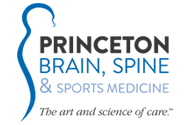Transsphenoidal Surgery
Transsphenoidal Pituitary Surgery
Procedure & Recovery Overview
Pituitary tumors are growths that develop in the pituitary gland. Though most are benign (not cancerous), growing slowly without traveling to other locations, these tumors can put dangerous pressure on the pituitary gland or optic nerves. In some cases, this pressure leads to headaches, vision loss and hormone deficiency or overproduction.
Some non- or less-symptomatic pituitary tumors can be carefully observed or treated with hormone medications. When more aggressive treatment is called for, your Princeton Brain, Spine & Sports Medicine medical team may recommend an endoscopic procedure called transsphenoidal surgery (TSS).
What Happens During Transsphenoidal Pituitary Surgery?
Your PBSSM neurosurgeon performs transsphenoidal surgery through the sphenoid sinus. The sphenoid sinus is a hollow skull space beneath the brain and behind the nasal passages. Using an endoscopic camera, microscope, small light and precision instruments, the surgeon enters the sinus through the nose to remove the mass. In some cases, your neurosurgeon may also make a small incision under the upper lip or in the nasal septum. After opening the sphenoid sinus to expose the pituitary, the surgeon removes the tumor. In many cases, tumor resection results in a successful reversal of headaches, hormone symptoms and vision issues.
Learn More or Schedule an Appointment
To learn more about transsphenoidal surgery or other treatments and interventions for pituitary tumors, contact our offices or take advantage of these resources:
To schedule a transsphenoidal surgery consultation or request information about PBSSM’s spinal, cranial and neurosurgical providers, call 215.741.3141 in Pennsylvania or 609.921.9001 in New Jersey. For your convenience, you can also contact PBSSM online and a member of our team will respond quickly to answer your questions.
Request an Appointment
Submit an appointment request on our patient portal or contact our New Jersey and Pennsylvania campuses to speak with a patient advocate.
